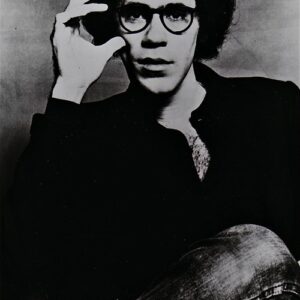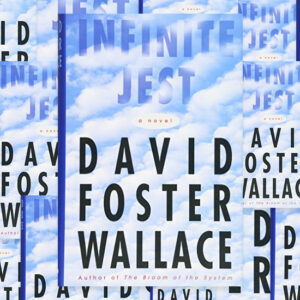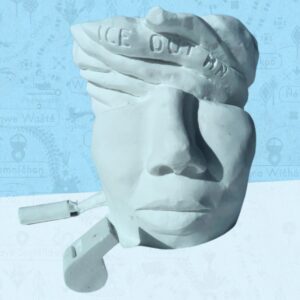
Siri Hustvedt on "After great pain, a formal feeling comes–"
No ‘I’ speaks in this poem. There is no whole self. The pain is in the past, but the paralysis of shock and grief are present, personi- fied in Nerves that sit, and a Heart that questions, as if these two internal body parts have slid into their pews at a funeral to take part in a ritual for the dead. Inner life has collapsed into empty, external gestures, and time makes no sense: a day, a century? The Feet move like the limbs of a vacant automaton, and on what ground? That too has no solidity. It might be air or nothing. And then Dickinson moves from the Wooden way to Quartz to stone to Lead, one substance heavier than the next, as if to give the reader the full weight of this terrible benumbed, frozen state. Long ago, I memorized this poem. After I say the words ‘Hour of Lead’, tears are in my eyes. Then I am lying in the snow, and by the time I have arrived at the poem’s final words ‘letting go’, my tears fall. It is as if the poet has given me permission, has said, Weep now. It is all right to weep now.
After great pain, a formal feeling comes–
Emily Dickinson
After great pain, a formal feeling comes–
The Nerves sit ceremonious, like Tombs–
The stiff Heart questions was it He, that bore,
And Yesterday, or Centuries before?
The Feet, mechanical go round–
Of Ground, or Air, or Ought–
A Wooden way
Regardless grown,
A Quartz contentment, like a stone–
This is the Hour of Lead–
Remembered, if outlived,
As Freezing persons, recollect the snow–
First– Chill– then Stupor– then the letting go–
(c. 1862)
Siri Hustvedt
Siri Hustvedt is a novelist and scholar who lives in Brooklyn, New York. She has a PhD in English literature from Columbia University and is a lecturer in psychiatry at Weill Cornell Medical College. She is the author of a book of poetry, seven novels, four collections of essays, and a work of nonfiction. Hustvedt’s scholarly work is interdisciplinary. It draws insights from literature, visual art, philosophy, psychoanalysis, psychiatry, neuroscience, and epigenetics. She has lectured at international conferences on neuroethics, neurophysiology, philosophy, art and memory, and published papers in science and other academic journals. In 2012 she was awarded the Gabarron International Prize for Thought and Humanities. Her novel The Blazing World was longlisted for the Man Booker Prize and won the Los Angeles Book Prize for fiction in 2014. In 2019, she won The European Essay Prize for her essay on the mind-body problem, The Delusions of Certainty, an American Academy of Arts and Letters Award for Literature, and The Princess of Asturias Award.



















